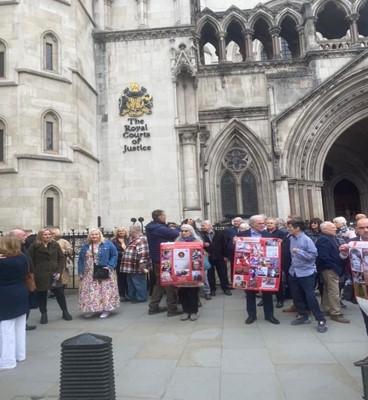Blog
In this series of blogs, HERC takes a multidisciplinary approach to exploring harmful evidence and evidencing harm. We consider the roles of harm and crime, uses and abuses of evidence in criminal justice and criminalisation to de-criminalisation.
** All views in the blogs are the author’s own.
-
The Case for Reforming Scotland’s Corporate Homicide Act
In this article, Sharon Hartles asks whether the Corporate Homocide Act in Scotland has achieved its aims, and considers whether it should be reformed.
6th December 2024 -
Robbie Powell 2024: A Legacy of Injustice and the Road to Accountability
In this article, Sharon Hartles provides an update on the case of Robbie Powell.
4th October 2024 -
Grenfell Tower Inquiry 2024: A Report on a System That Never Learns
In this article, Sharon Hartles reflects on the publication of the Grenfell Tower Inquiry's final report.
10th September 2024 -
Grenfell. The Final Report. And?
In this article, ahead of the publication of the final report of the Grenfell Tower Inquiry, Steve Tombs gives three observations on the Inquiry and the likely import of its final report.
3rd September 2024 -
Justice after Grenfell?
Seven years ago, on 14th June 2017, a fire broke out in Grenfell Tower, a 24-storey tower block on the Lancaster West estate in North Kensington, West London, a relatively poor and ethnically diverse area of social housing located in the richest Borough in England. 72 people were killed.
13th June 2024 -
Primodos 2024: The Quest for Justice Continues
In this article, Sharon Hartles explores the ongoing challenges that Primodos survivors encounter in seeking justice. She discusses the impact of new evidence and advocacy efforts, highlighting the resilience of those involved in the quest for accountability. Sharon Hartles is a member of the Harm and Evidence Research Collaborative at the Open University. Additionally, she is affiliated with the Risky Hormones research project, an international collaboration in partnership with patient groups.
22nd May 2024 -
The UK government aims to stop publishing stats on homeless people’s deaths – here’s why that’s a problem
The UK government is consulting on plans to stop publishing vital statistics from the Office for National Statistics (ONS) on deaths of homeless people. This article sets out why they should continue to be published.
23rd February 2024 -
Equity statements are not enough – how elite British institutions can improve recruitment experiences for racially minoritised academics
Increasing demands for greater intellectual diversity have drawn attention to the under representation of racially minoritised groups in UK higher education institutions (HEIs). However, as this post explores, there is much more that British universities can do to improve recruitment experiences for racially minoritised academics.
15th December 2023 -
Merseyside Football’s Earliest Patrons and the Slave Trade Connection
This study is concerned with the roots of Everton Football Club and, given their shared heritage, Liverpool Football Club. It concerns a dimension to the history of both clubs that has been largely overlooked but should be considered in light of Liverpool’s ongoing civic reckoning with its historic slave trade connection. The research carried out suggests that the foundation period of professional football on Merseyside was marked by the patronage of well-known figures in Liverpool society who, directly or indirectly, profited from the exploitation of slavery and other forms of coerced labour.
15th December 2023 -
Primodos 2023: Fighting Against the Odds - A Denied Opportunity for Justice
In this article, Sharon Hartles highlights the high-profile legal battle involving numerous Primodos-affected claimants against pharmaceutical companies and the government. The court ruled against the claimants, dismissing their claims related to hormone pregnancy tests and foetal harm. This decision led to disappointment and criticism from advocates, MPs, and academics involved in the Primodos scandal. Sharon Hartles is affiliated with the Risky Hormones research project, which is an international collaboration in partnership with patient groups. Additionally, she is a member of the Harm and Evidence Research Collaborative at the Open University.
19th September 2023

